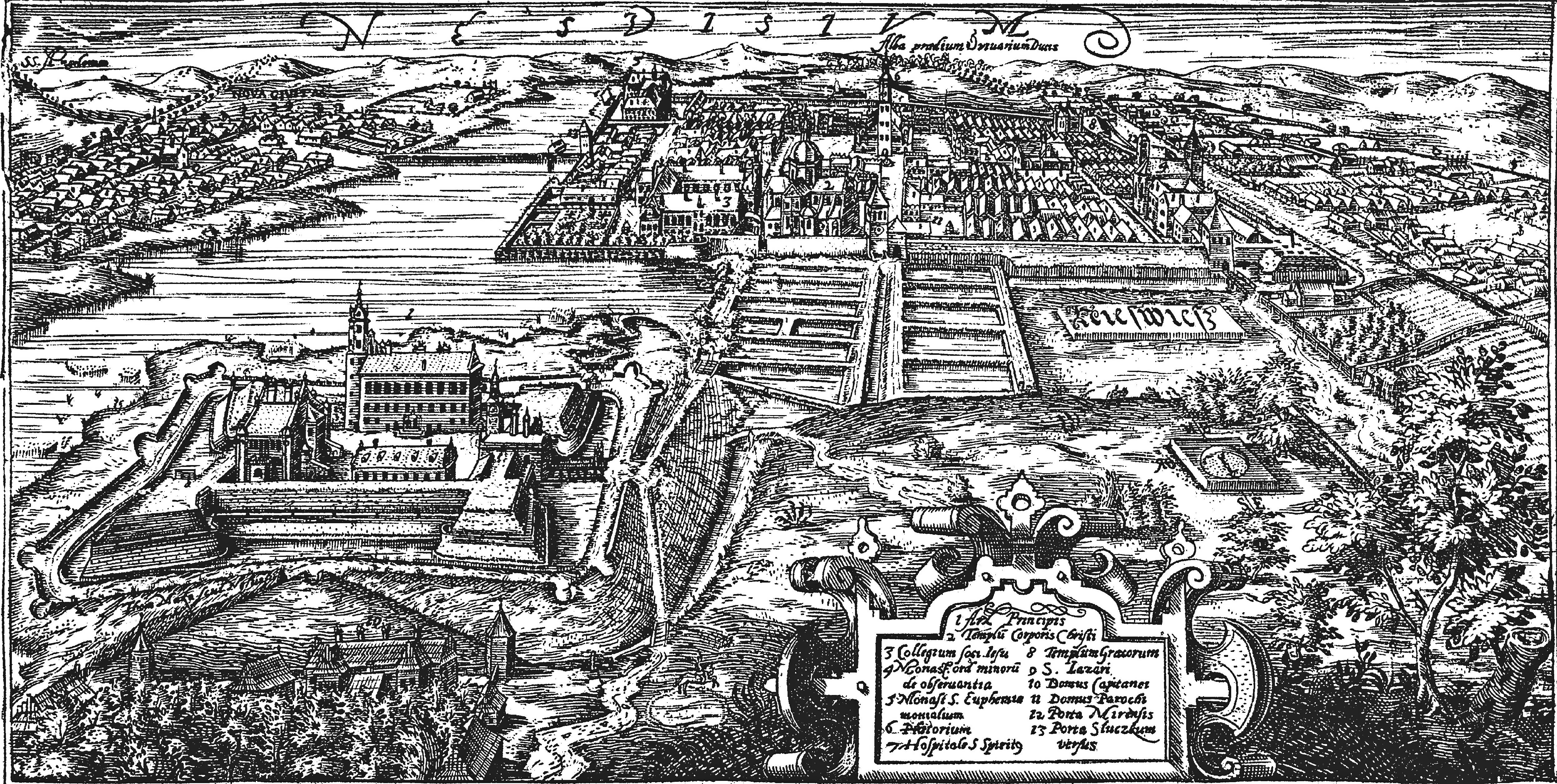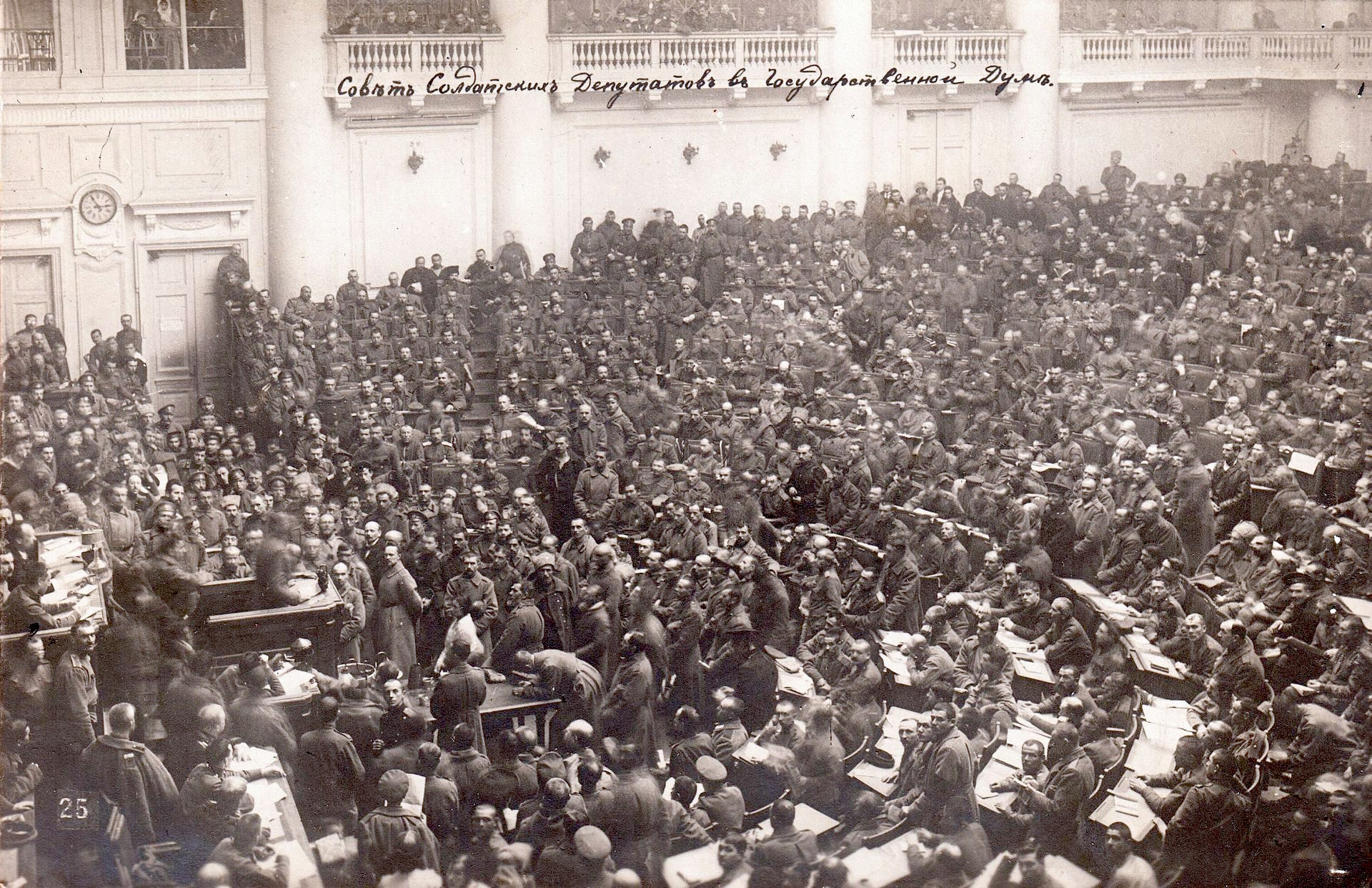|
Nieśwież Uprising
The Niasviž uprising, or Nieśwież uprising (Polish: Powstanie nieświeskie, ) was a failed anti-Soviet pro-Polish insurrection residents of the town of Niasviž (, now Belarus. It took place on March 14–19, 1919, during the Polish-Soviet War. As a result, the victorious Bolsheviks shot five leaders of the uprising. The Niasviž Uprising was later commemorated by two monuments, one of which still exists. Background In early 1919, Niasviž was captured without fight by the Bolsheviks, who advanced westwards, behind German troops of the Ober Ost. In February 1919, the Polish-Soviet War began, and Polish forces moved eastwards, clashing with the Red Army. The residents of Niasviž, who anticipated the arrival of Polish troops any day, decided to start an anti-Bolshevik rebellion, headed by principal of the local grammar school, Mieczysław Wolnisty. In the night of March 14/15, 1919, the rebels seized key buildings in the town, and liquidated local council. Some Communist le ... [...More Info...] [...Related Items...] OR: [Wikipedia] [Google] [Baidu] |
Nieśwież
Nyasvizh or Nesvizh is a town in Minsk Region, Belarus. It serves as the administrative centre of Nyasvizh District. Nyasvizh is the site of Nesvizh Castle, a World Heritage Site. In 2009, its population was 14,300. As of 2025, it has a population of 15,909. History Nesvizh was first documented in 1223. It was part of the Grand Duchy of Lithuania until 1793, but the Grand Duchy was part of the Polish–Lithuanian Commonwealth since 1569. In the 15th century, while still a minor town, it belonged to the Kiszka family and later to the Radziwiłł family, and remained the family's seat until 1813. In 1561 or 1562 Maciej Kawęczyński founded the print works of the Polish Brethren. The first Belarusian language book printed in Latin script, a catechism by Symon Budny, was published in Nesvizh in 1562. The ''Nieśwież Bible'' ('' Biblia nieświeska''), one of the oldest Polish translations of the Bible, also by Budny, was completed there in 1571 and published in 1572. Nesviz ... [...More Info...] [...Related Items...] OR: [Wikipedia] [Google] [Baidu] |
Soviet (council)
A soviet (, , ) is a workers' council that follows a socialist ideology, particularly in the context of the Russian Revolution. Soviets were the main form of government in the Russian SFSR and the Makhnovshchina. The first soviets were established during the 1905 Revolution in the late Russian Empire. In 1917, following the February Revolution, a state of dual power emerged between the Russian Provisional Government and the soviets. This ended later that year with the October Revolution, during which the Second Congress of Soviets proclaimed itself as the supreme governing body of the country. Because soviets gave the name to the later Soviet Union, they are frequently associated with the state's establishment. However, the term may also refer to any workers' council that is socialist, such as the Irish soviets. Soviets do not inherently need to adhere to the ideology of the Soviet Union. Etymology "Soviet" is derived from a Russian word meaning council, assembly, advi ... [...More Info...] [...Related Items...] OR: [Wikipedia] [Google] [Baidu] |
Anti-Bolshevik Uprisings , a term widely used against highly sectarian communist groups of which many are anti-Leninist
{{disambiguation ...
Anti-bolshevism may refer to: * Council communism, a current of socialist thought * Anti-communism, opposition to communism * Anti-Leninism, opposition to the political philosophy of Vladimir Lenin * Anti-Stalinist left, a leftist current opposed to the political philosophy of Joseph Stalin * Anti-Sovietism, opposition to the government of the Soviet Union * Ultra-leftism In Marxism, ultra-leftism encompasses a broad spectrum of revolutionary Marxist currents that are anti-Leninist in perspective. Ultra-leftism distinguishes itself from other left-wing currents through its rejection of electoralism, trade union ... [...More Info...] [...Related Items...] OR: [Wikipedia] [Google] [Baidu] |
Western Belorussia (1918–1939)
Western Belorussia or Western Belarus (; ; ) is a historical region of modern-day Belarus which belonged to the Second Polish Republic during the interwar period. For twenty years before the 1939 invasion of Poland, it was the northern part of the Polish Kresy macroregion. Following the end of World War II in Europe, most of Western Belorussia was ceded to the Soviet Union by the Allies, while some of it, including Białystok, was given to the Polish People's Republic. Until the dissolution of the Soviet Union in 1991, Western Belorussia formed the western part of the Byelorussian Soviet Socialist Republic (BSSR). Today, it constitutes the west of modern Belarus. Created by the USSR after the conquest of Poland, the new western provinces of Byelorussian SSR acquired from Poland included Baranavichy, Belastok, Brest, Vileyka and the Pinsk Regions. The majority of Belastok Region was returned to Poland and the rest of the regions were reorganized one more time after the Soviet l ... [...More Info...] [...Related Items...] OR: [Wikipedia] [Google] [Baidu] |
1919 In Belarus
Events January * January 1 ** The Czechoslovak Legions occupy much of the self-proclaimed "free city" of Bratislava, Pressburg (later Bratislava), enforcing its incorporation into the new republic of Czechoslovakia. ** HMY Iolaire, HMY ''Iolaire'' sinks off the coast of the Hebrides; 201 people, mostly servicemen returning home to Lewis and Harris, are killed. * January 2–January 22, 22 – Russian Civil War: The Red Army's Caspian-Caucasian Front begins the Northern Caucasus Operation (1918–1919), Northern Caucasus Operation against the White Army, but fails to make progress. * January 3 – The Faisal–Weizmann Agreement is signed by Faisal I of Iraq, Emir Faisal (representing the Arab Kingdom of Hejaz) and Zionism, Zionist leader Chaim Weizmann, for Arab–Jewish cooperation in the development of a Jewish homeland in Palestine (region), Palestine, and an Arab nation in a large part of the Middle East. * January 5 – In Germany: ** Spartacist uprising in ... [...More Info...] [...Related Items...] OR: [Wikipedia] [Google] [Baidu] |
Nyasvizh
Nyasvizh or Nesvizh is a town in Minsk Region, Belarus. It serves as the administrative centre of Nyasvizh District. Nyasvizh is the site of Nesvizh Castle, a World Heritage Site. In 2009, its population was 14,300. As of 2025, it has a population of 15,909. History Nesvizh was first documented in 1223. It was part of the Grand Duchy of Lithuania until 1793, but the Grand Duchy was part of the Polish–Lithuanian Commonwealth since 1569. In the 15th century, while still a minor town, it belonged to the Kiszka family and later to the Radziwiłł family, and remained the family's seat until 1813. In 1561 or 1562 Maciej Kawęczyński founded the print works of the Polish Brethren. The first Belarusian language book printed in Latin script, a catechism by Symon Budny, was published in Nesvizh in 1562. The ''Nieśwież Bible'' ('' Biblia nieświeska''), one of the oldest Polish translations of the Bible, also by Budny, was completed there in 1571 and published in 1572. Nesvizh ... [...More Info...] [...Related Items...] OR: [Wikipedia] [Google] [Baidu] |
Military Operations Of The Russian Civil War In 1919
A military, also known collectively as armed forces, is a heavily Weapon, armed, highly organized force primarily intended for warfare. Militaries are typically authorized and maintained by a sovereign state, with their members identifiable by a distinct military uniform. They may consist of one or more military branches such as an army, navy, air force, space force, marines, or coast guard. The main task of a military is usually defined as defence of their state and its interests against external armed threats. In broad usage, the terms "armed forces" and "military" are often synonymous, although in technical usage a distinction is sometimes made in which a country's armed forces may include other paramilitary forces such as armed police. Beyond warfare, the military may be employed in additional sanctioned and non-sanctioned functions within the state, including internal security threats, crowd control, promotion of political agendas, emergency services and reconstructi ... [...More Info...] [...Related Items...] OR: [Wikipedia] [Google] [Baidu] |
Battles Of The Polish–Soviet War
A battle is an occurrence of combat in warfare between opposing military units of any number or size. A war usually consists of multiple battles. In general, a battle is a military engagement that is well defined in duration, area, and force commitment. An engagement with only limited commitment between the forces and without decisive results is sometimes called a skirmish. The word "battle" can also be used infrequently to refer to an entire operational campaign, although this usage greatly diverges from its conventional or customary meaning. Generally, the word "battle" is used for such campaigns if referring to a protracted combat encounter in which either one or both of the combatants had the same methods, resources, and strategic objectives throughout the encounter. Some prominent examples of this would be the Battle of the Atlantic, Battle of Britain, and the Battle of France, all in World War II. Wars and military campaigns are guided by military strategy, whereas batt ... [...More Info...] [...Related Items...] OR: [Wikipedia] [Google] [Baidu] |
1919 In Poland
Events January * January 1 ** The Czechoslovak Legions occupy much of the self-proclaimed "free city" of Pressburg (later Bratislava), enforcing its incorporation into the new republic of Czechoslovakia. ** HMY ''Iolaire'' sinks off the coast of the Hebrides; 201 people, mostly servicemen returning home to Lewis and Harris, are killed. * January 2– 22 – Russian Civil War: The Red Army's Caspian-Caucasian Front begins the Northern Caucasus Operation against the White Army, but fails to make progress. * January 3 – The Faisal–Weizmann Agreement is signed by Emir Faisal (representing the Arab Kingdom of Hejaz) and Zionist leader Chaim Weizmann, for Arab–Jewish cooperation in the development of a Jewish homeland in Palestine, and an Arab nation in a large part of the Middle East. * January 5 – In Germany: ** Spartacist uprising in Berlin: The Marxist Spartacus League, with the newly formed Communist Party of Germany and the Independent Social Dem ... [...More Info...] [...Related Items...] OR: [Wikipedia] [Google] [Baidu] |
World War II
World War II or the Second World War (1 September 1939 – 2 September 1945) was a World war, global conflict between two coalitions: the Allies of World War II, Allies and the Axis powers. World War II by country, Nearly all of the world's countries participated, with many nations mobilising all resources in pursuit of total war. Tanks in World War II, Tanks and Air warfare of World War II, aircraft played major roles, enabling the strategic bombing of cities and delivery of the Atomic bombings of Hiroshima and Nagasaki, first and only nuclear weapons ever used in war. World War II is the List of wars by death toll, deadliest conflict in history, causing World War II casualties, the death of 70 to 85 million people, more than half of whom were civilians. Millions died in genocides, including the Holocaust, and by massacres, starvation, and disease. After the Allied victory, Allied-occupied Germany, Germany, Allied-occupied Austria, Austria, Occupation of Japan, Japan, a ... [...More Info...] [...Related Items...] OR: [Wikipedia] [Google] [Baidu] |
Second Polish Republic
The Second Polish Republic, at the time officially known as the Republic of Poland, was a country in Central and Eastern Europe that existed between 7 October 1918 and 6 October 1939. The state was established in the final stage of World War I. The Second Republic was taken over in 1939, after it was invaded by Nazi Germany, the Soviet Union, and the Slovak Republic, marking the beginning of the European theatre of the Second World War. The Polish government-in-exile was established in Paris and later London after the fall of France in 1940. When, after several regional conflicts, most importantly the victorious Polish-Soviet war, the borders of the state were finalized in 1922, Poland's neighbours were Czechoslovakia, Germany, the Free City of Danzig, Lithuania, Latvia, Romania, and the Soviet Union. It had access to the Baltic Sea via a short strip of coastline known as the Polish Corridor on either side of the city of Gdynia. Between March and August 1939, Poland a ... [...More Info...] [...Related Items...] OR: [Wikipedia] [Google] [Baidu] |






